Yamaha Reface: CS, DX, CP and YC mini keyboards revealed
Specs, prices and release dates confirmed
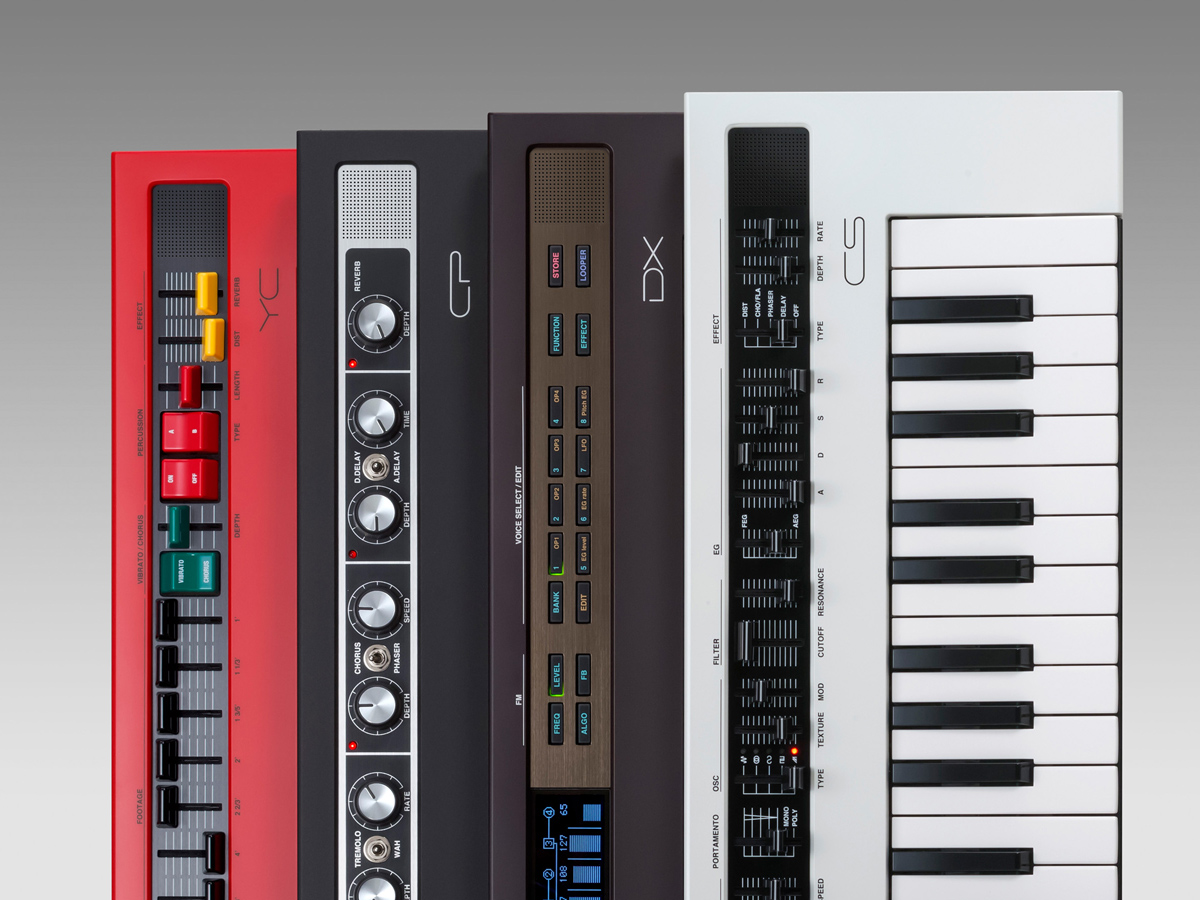
New faces
At long last, Yamaha is getting back into the non-workstation hardware synth game. In a major announcement, it's launched the Reface range, which contains four compact and portable keyboards.
As expected, the new range references some of Yamaha's most iconic keyboard instrument lines. Specifically, we're talking about the CS and DX synths, the CP stage pianos and the YC combo organs. Each of these brands has a corresponding Reface model that sports a 3-octave mini keyboard, built-in speakers and a battery powering option.
Each model takes design cues from the instrument that inspired it. So, the Reface YC has a bright red case, the Reface CP comes with retro-styled silver-capped knobs, the Reface CS is covered in sliders and the Reface DX has plenty of small rectangular buttons.
Up for discussion
Inevitably, there'll be a lot of debate about Yamaha's decision to use mini- rather than full-size keys, particularly on the CP and YC models. Many piano and organ players are likely to be decidedly unreceptive to the idea of playing a small scale keyboard, but Yamaha is keen to stress that these are 'HQ-mini' keys that it says are “super-playable”.
Furthermore, there'll be those who are disappointed that the Reface CS isn't analogue. But as Roland has proved with its Aira range, this doesn't have to be a barrier to success.
Yamaha has also announced that a free iOS app, Reface Capture, will be available for storing/recalling voices and organising them into set lists, and that you'll be able to share voices online using the Soundmondo network.
With any luck, this will be just the first of a new wave of synth launches from Yamaha. We'll reserve judgment on the Refaces until we've tried them (something that we hope to do very soon), but it's great to have the company back.
All four Reface models will be released in September 2015 priced at £347 each. Find out more on the Yamaha Synth website and by clicking through our gallery, which contains video demos of each model.
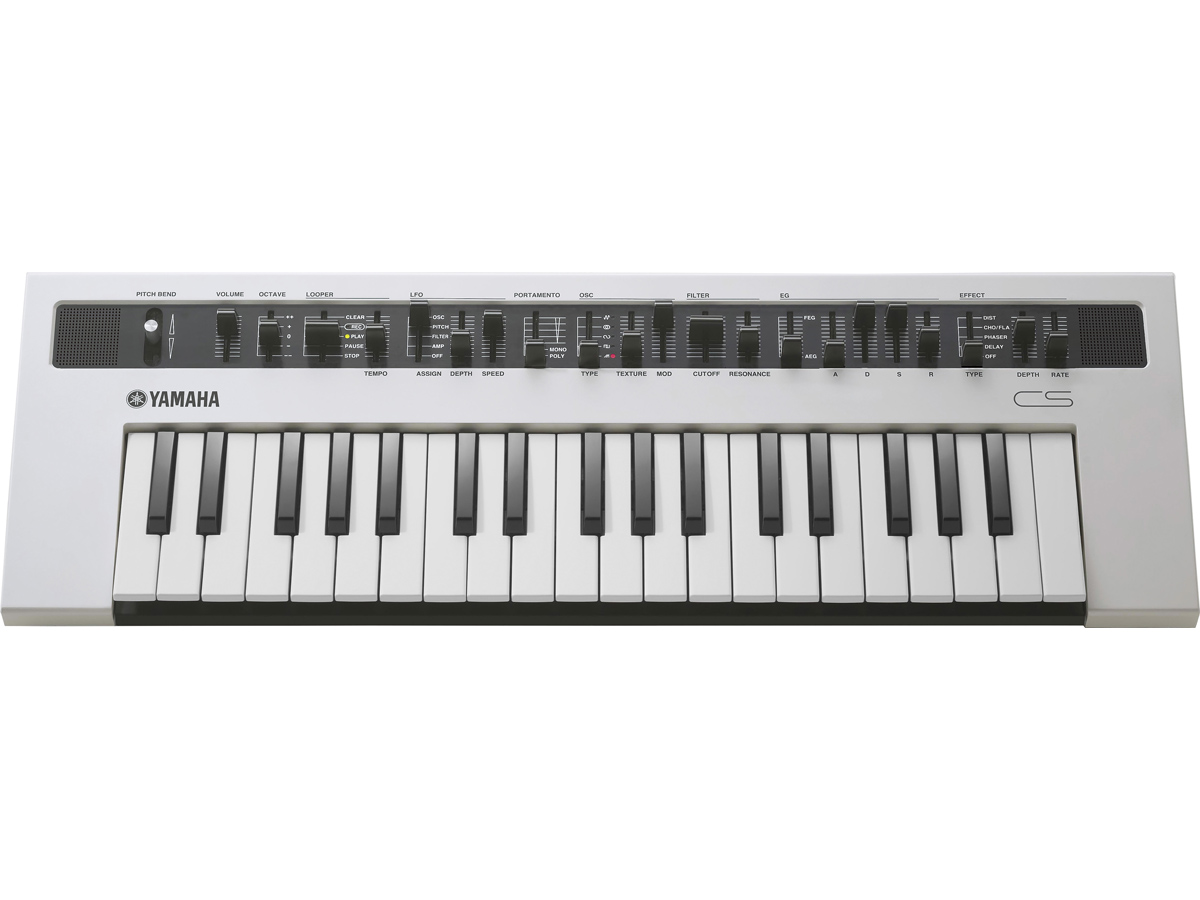
Reface CS
Introduced in 1976, and used by everyone from Stevie Wonder to Vangelis, Yamaha's CS-80 has become one of the most desirable vintage synths of all time.
In many ways, the compact and lightweight Reface CS couldn't be more different (the CS-80 weighed more than 200lbs), but Yamaha says that its five oscillator types (multi saw, pulse, oscillator sync, ring modulation and frequency modulation) enable you to create an incredible range of sounds and that the instrument can produce both analogue-style and digital tones.
The Reface CS is powered by an 'analogue physical modelling' engine, has a simple, slider-centric control set, comes with a phrase looper and offers eight notes of polyphony.
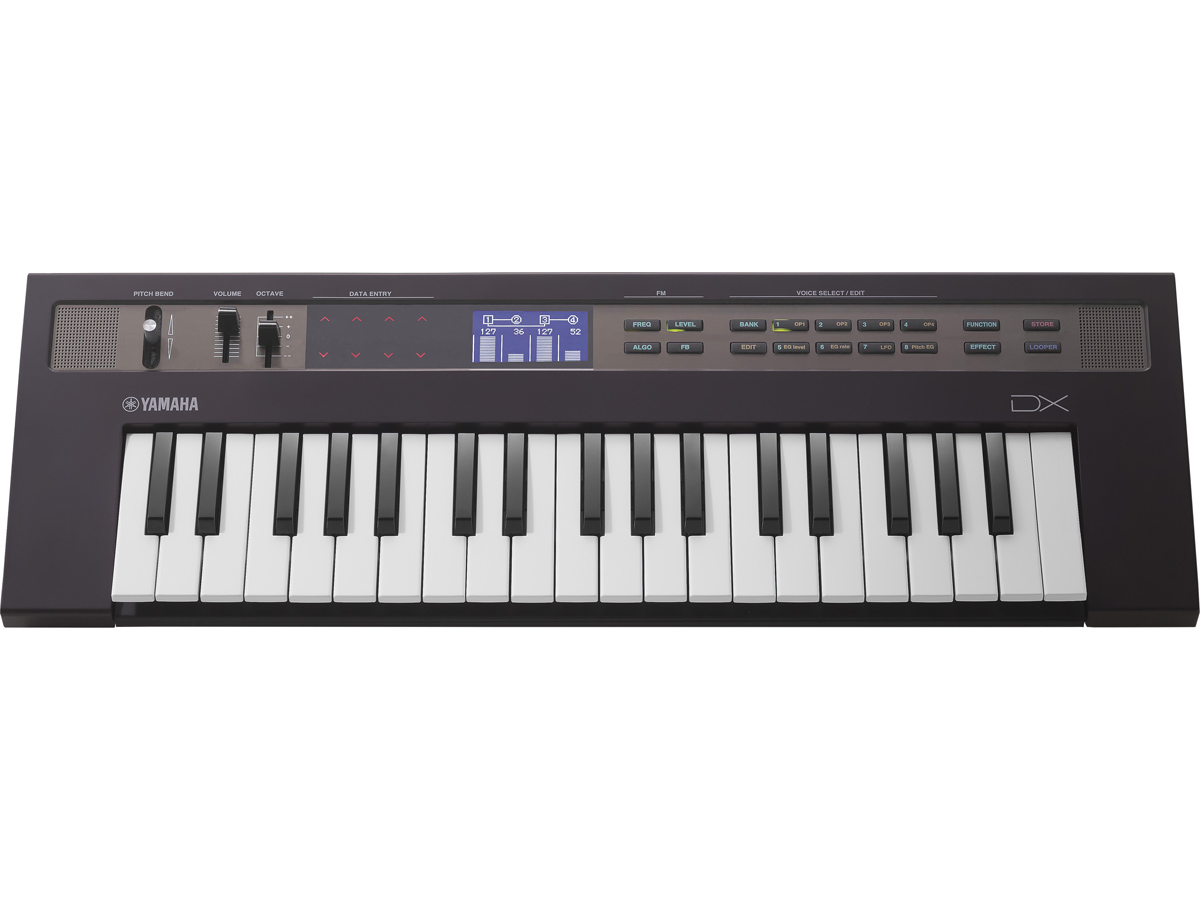
Reface DX
A digital '80s classic, the DX7 has inspired countless software emulations, and now Yamaha is bringing it back in hardware form.
That said, this isn't a straight emulation: as well as being able to recreate those crystalline sounds that we all know and love, Yamaha says that it'll also be capable of making “modern EDM” noises. As well as those familiar rectangular buttons, you also have capacitive multi-touch control, and there are 32 voice memories and eight notes of polyphony to play with.
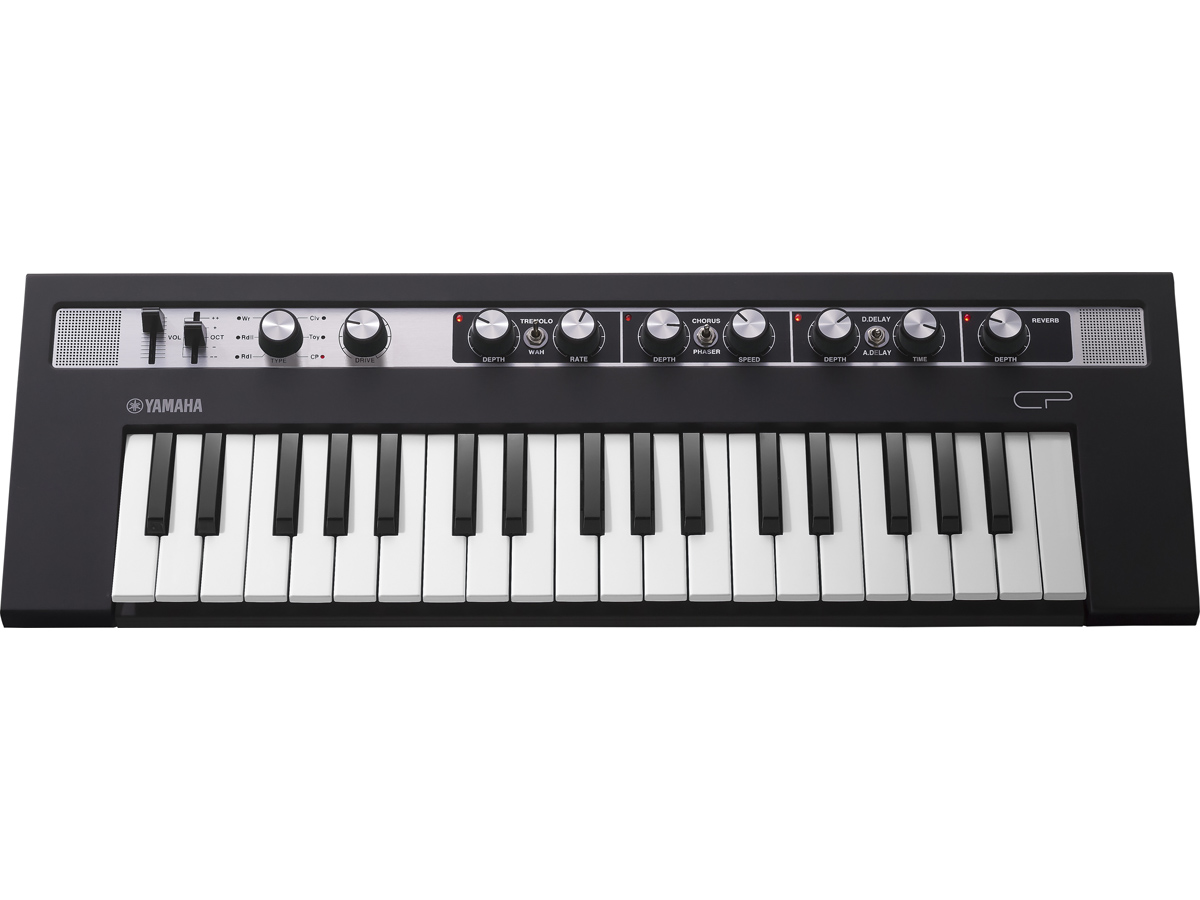
Reface CP
Used by the likes of Keane and Phil Collins (and, far more funkily, D'Angelo), the sound of Yamaha's CP 'Combo Piano' has enjoyed something of a renaissance in recent years.
The Reface CP actually emulates six classic '70s stage pianos (courtesy of Spectral Component Modeling and AWM2 sound generation), also providing you with five effects with realtime controls. Polyphony is 128 notes, and there's a sustain pedal input.
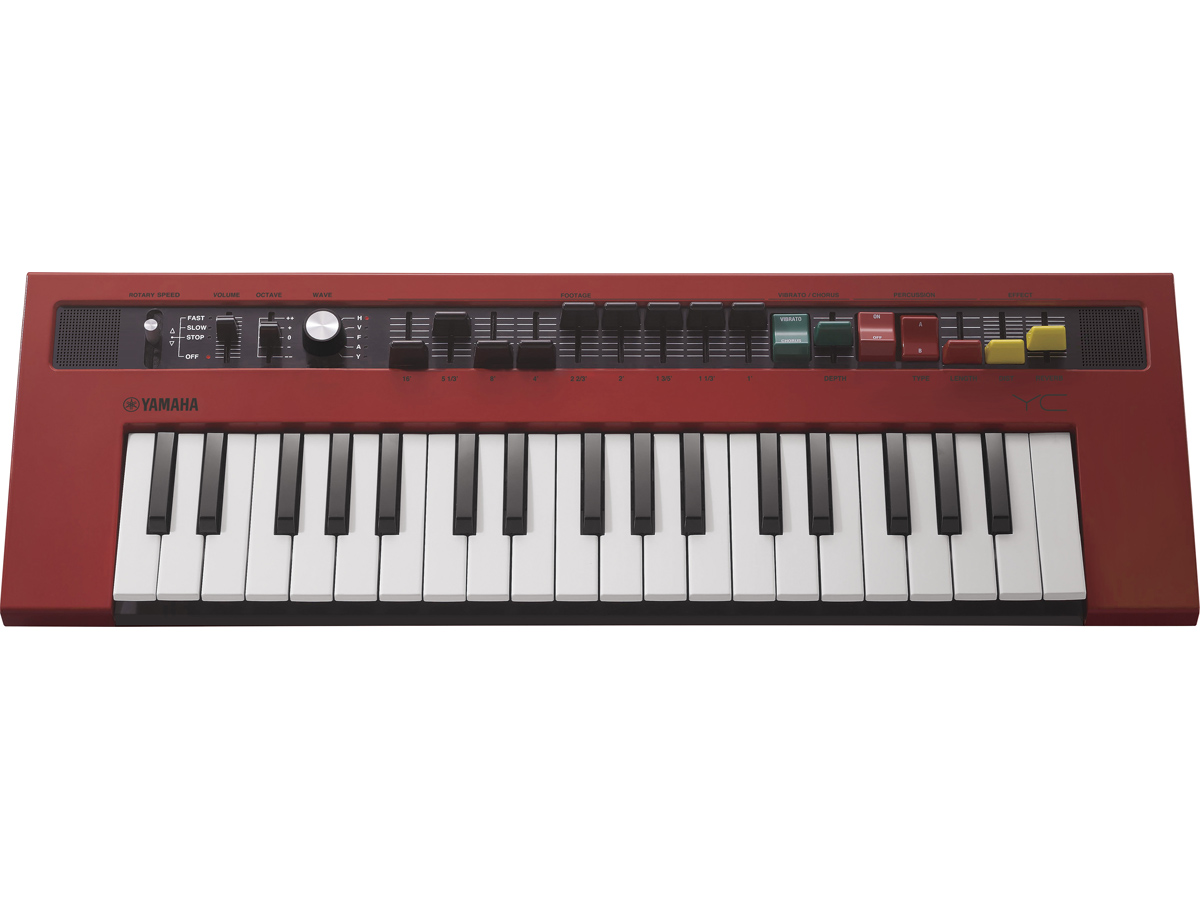
Reface YC
Yamaha released its first YC combo organ in 1969, and its models were used throughout the '70s by the likes of Pink Floyd and Tangerine Dream.
The levers from the originals aren't present on the Reface YC, but we are promised a “complete organ experience” complete with nine drawbars, a rotary speaker emulation, percussion and reverb/distortion effects. There are five organ types to choose from and 128-note polyphony.

I’m the Deputy Editor of MusicRadar, having worked on the site since its launch in 2007. I previously spent eight years working on our sister magazine, Computer Music. I’ve been playing the piano, gigging in bands and failing to finish tracks at home for more than 30 years, 24 of which I’ve also spent writing about music and the ever-changing technology used to make it.

